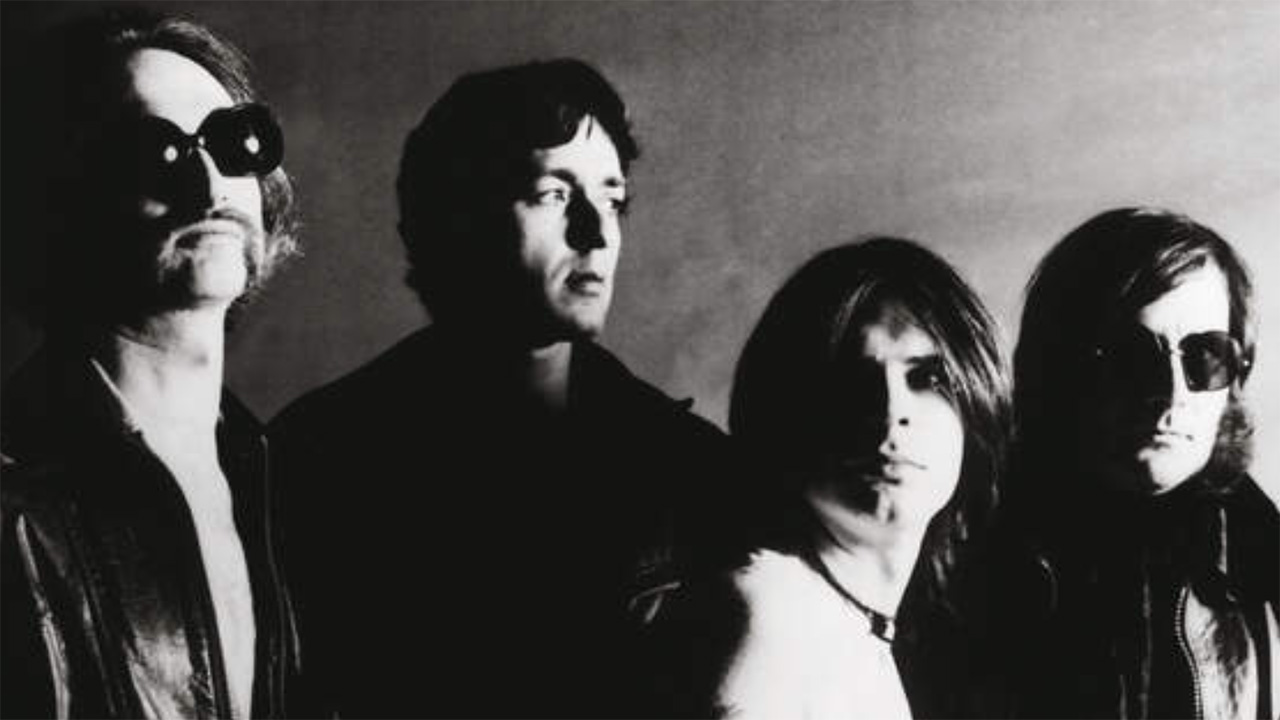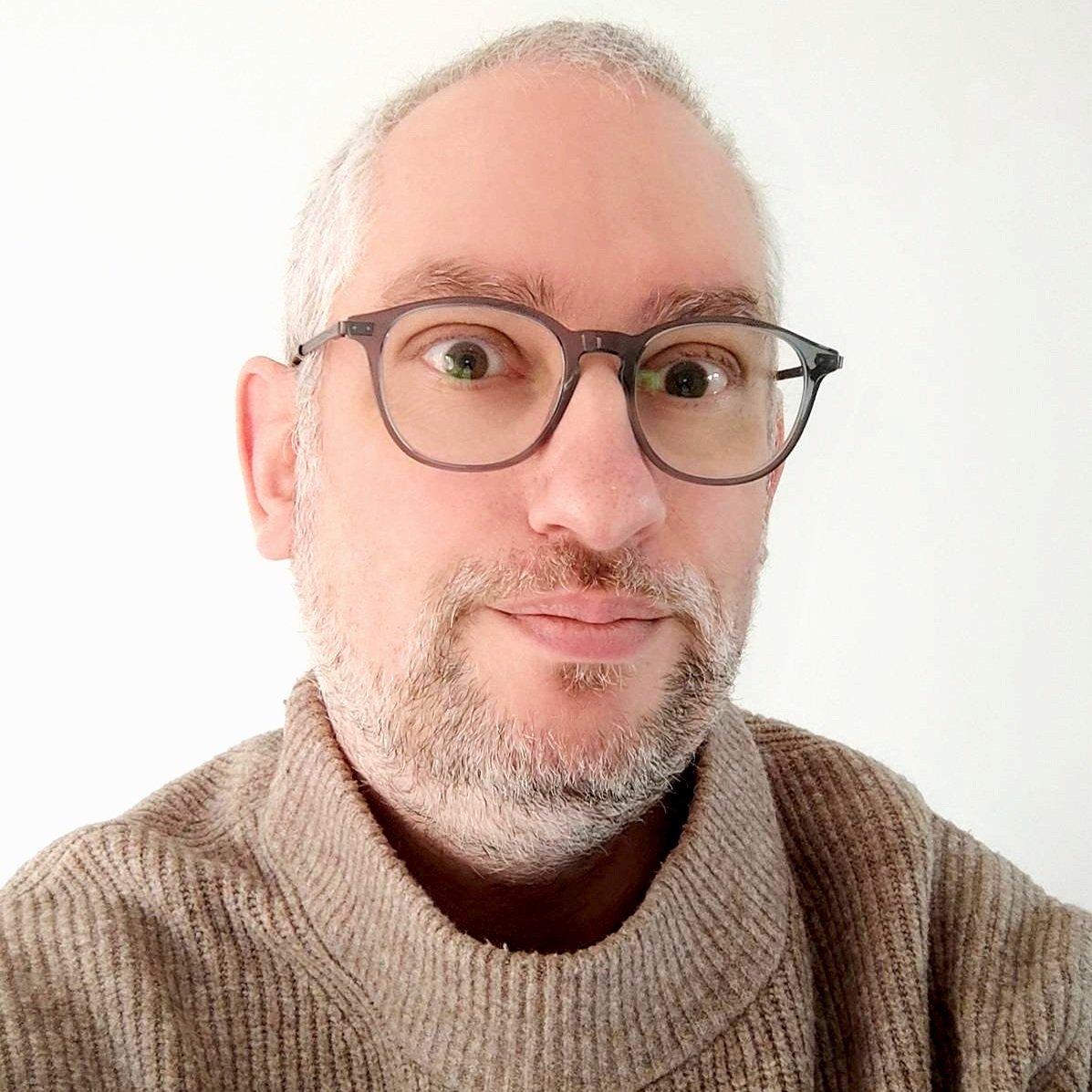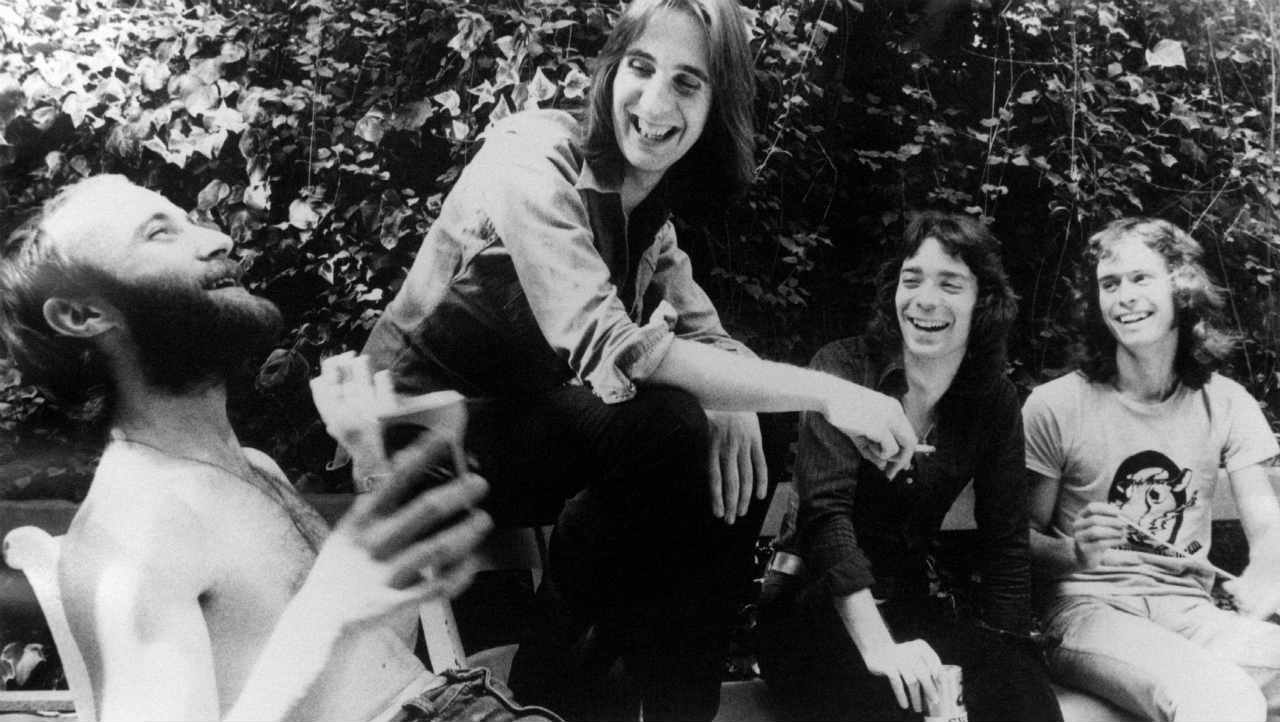“Everybody said we couldn’t play like the American and English groups. We didn’t want to play like them”: Irmin Schmidt isn’t surprised that Can’s music has endured for so long
50 years after the release of Soon Over Babaluma, the founding keyboardist reflects on what he calls “the last of our best albums”

Half a century on from the release of their first post-Damo Suzuki release, Soon Over Babaluma, Can remain one of the most unique bands out there. As their late-period live albums campaign continues, keyboardist Irmin Schmidt looks back on the creation of their fifth record and explores the genius of the krautrock pioneers.
Of all the exceptional bands that emerged from Germany during the 1960s and 70s, none were more daring than Can. The pioneering group are now back in the public eye thanks to their ongoing series of archival live performances. They’ve also been celebrating the 50th anniversary of Soon Over Babaluma, the band’s first studio release following the departure of charismatic frontman Damo Suzuki in 1973.
Vocals on the album were handled by late guitarist Michael Karoli and keyboard player Irmin Schmidt. The latter, now 87, and original vocalist Malcolm Mooney are the only surviving members of Can’s early and classic eras, following the passing of Suzuki last year.
“It happened one generation after culture was cancelled and ruined and devastated,” says Schmidt, pondering the great wave of German musical invention. “The courage arose not to imitate, but to create something that could only be done when you grew up in this country.”
Born in Berlin in 1937, the war naturally had a profound effect on his childhood. “I heard a lot of music at home. My parents both played piano. It was normal for me. Then came the bombing and we were evacuated. After the war we had nothing. Our house was bombed – everything was lost.”
He began taking lessons on the piano and it soon became apparent that he had an instinctive talent. “From 12, 13, it was just part of my life: I was conducting the school orchestra when I was 16,” he says. “I studied piano, conducting and composition at university. I founded an ensemble and performed a lot of contemporary music in my early 20s.”
In Cologne he studied under Karlheinz Stockhausen, the groundbreaking composer dubbed ‘the father of electronic music’ – until, in 1968, Schmidt took the fateful decision to pursue a different kind of project. “I was conducting and making piano recitals,” he recalls, “especially contemporary classical music. I had studied with Stockhausen and thought, ‘This is not the only contemporary music.’
Sign up below to get the latest from Prog, plus exclusive special offers, direct to your inbox!
“Jazz is as much of basic importance as contemporary music of the 20th century, so I was looking for other people who were based in jazz or in contemporary electronics, and also in the most recent contemporary music: rock. I wanted to create an ensemble where the members had roots in different genres.”
I was very unsure when Jaki said he was the drummer I was looking for. He said, ‘Don’t worry, I won’t play free jazz!’
Drummer Jaki Liebezeit was the first recruit. “I had played with him before in film and theatre productions. He was based in Cologne, like me, and I heard him very often with his free-jazz group – although I distrusted free jazz. I didn’t see the sense in playing drums using a bow for the cymbals and this kind of thing. So I was very unsure if it was right when Jaki said he was the drummer I was looking for. My idea of a jazz drummer was Max Roach. Jaki said, ‘Don’t worry, I won’t play free jazz!’”
Bassist Holger Czukay, guitarist Michael Karoli and vocalist Malcolm Mooney rounded out the original version of Can. Czukay had also studied under Stockhausen and had a keen interest in experimental music. Karoli came from a jazz background but had been turned on to rock by the Rolling Stones.
“The idea was that already there was this collage of four musicians, which came from totally different routes,” says Schmidt. “Jaki was a jazz drummer, Holger was into electronics, and Michael was a rock musician. My idea was also that it should be totally spontaneous – finding our way together, composing together; not me again, sitting down and composing and then telling others what to play. I had done that already.”
They found their direction by playing together, he reports. “I don’t think improvising is really the right word; it was kind of intuitive, instant composing. We were just playing. Playing for hours and hours, and all of a sudden the right groove was there. Which doesn’t mean that Jaki alone created the groove – the groove can be created by four people at the same time. And from this groove we created the song.”
We wanted our own production means, and not be dependent on any producer, record company or whatever
A lucky break gave Can an unusual venue for the recording of their first two albums, Monster Movie (1969) and Tago Mago (1971). Schloss Nörvenich, a sprawling 15th-century castle located just outside of Cologne, was being rented by art collector Christoph Vohwinkel, who became a friend of Schmidt.
“I was very active in the art scene,” says the keyboardist. “Most of my friends were not musicians, but painters. I made features and wrote speeches for the opening of art shows and things like this.” The pair were introduced via a gallery. “The gallery told him, ‘There’s this group looking for a place and you have this big castle – maybe there’s room for them.’ And he said, ‘Yes, there is!’”
The band’s equipment was basic, but that was never a problem. “We wanted to have our own production means,” says Schmidt, “and not be dependent on any producer or record company or whatever. So we only recorded on two two-track machines. On the second you could overdub, but only once.
“During recording, it forces you to listen exactly to the others to create the right balance. It’s an extremely good education; an extremely good way to get the group together, because you’re so dependent on listening more than playing. Listening was the secret.”
Although not a driving factor, money was also a consideration. “Of course, we wanted to make a living because we were professional musicians. I hadn’t learned anything else. When you study music, you do it because you want to become a musician. That doesn’t mean I wanted to get rich. You just want to make a living; not be dependent on anything else.”
We had to move out of the castle. Sculptor Ulrich Rückriem lived there with his kids. We were working at night – that was too much noise
Helpfully, Can’s popularity was steadily growing via the use of their single Spoon as the theme tune to the German TV series Das Messer. By 1972 and third album, Ege Bamyasi, they’d found a new working space. “We had to move out of the castle – we were not the only guests. The sculptor Ulrich Rückriem lived there with his family, and they had kids. We were working at night, and of course, that was too much noise.”
Schmidt’s wife Hildegard, who was also Can’s manager, discovered an abandoned cinema in the municipality of Weilerswist, which became the band’s official studio, Inner Space. Schmidt recalls: “It gradually grew from two two-track machines. By the time of Landed in 1975, we had a 16-track recording machine and a mixing desk.”
New equipment meant new ways of working. “We all had doubts about whether it changed for the good. The way we did it before forced us to listen. I think Soon Over Babaluma was the last one we recorded on two-track – and I think it’s the last of our best albums.”
Released in November 1974, Soon Over Babaluma combines elements of ambient, jazz and rock into a dazzling display of invention. “I remember the recording of Come Sta, La Luna,” says Schmidt, “because that was one of the most refined and subtle recording processes you could achieve on a two-track machine. It’s full of nuance with background sounds like in a restaurant or in a saloon, and all these very, very subtle touches – the maximum you could get with overdubbing on two tracks.”
We realised playing without a singer was just as good. Jaki always said: ‘Singers are only troublemakers!’
Opening number Dizzy Dizzy made for another highlight. “It’s a wonderful piece and one of our best,” Schmidt enthuses. “We put it in our new series of live recordings, and it’s also on The Lost Tapes [a 2012 compilation]. It shows the potential – it could grow.”
With Mooney long gone, and replacement Suzuki also having departed after three albums, Schmidt stepped up for vocals on Babaluma. “Damo left, but we thought there should be some vocals. So Michael sang on Dizzy Dizzy, and I sang on Come Sta, La Luna. Then from the next record on we said, ‘We don’t really need a singer.’
“We realised – and you can hear it now with this live series – that when we played without a singer it was just as good. And it was so intense. Jaki always said: ‘Forget about singers; they’re only troublemakers!’ Playing live was always a strong point of the band.”
He admits: “Before going onstage I have terrible anxiety, but the moment I go on I feel at home – all anxiety is gone.” It had been the same since his earliest days of professional work. “My teachers, when they saw me performing, said, ‘Why can’t you play like this in our lessons?’ I was always better, much better, when I had an audience.”
It was not that we said we had to make everything different… we didn’t want to repeat ourselves
It’s the unpredictability and adaptability of Can that makes listening to their music such an engrossing experience. As Schmidt says, “No record of Can repeats the same feeling; the same style. Every record was different. It was not that we said we had to make everything different. It grew totally naturally; we didn’t want to repeat ourselves.”
From the start, they knew they were charting a new path. “When we listened to what we’d done, of course we realised it sounded totally different. Everybody in Germany – journalists mostly – said we were not able to play like the American and English groups. We didn’t want to.”
Is Schmidt surprised that the music Can made 50 years ago is still being listened to? “Not really,” he says. “I mean, I’m very glad that it succeeded in a way, but with a classical education, you play music which is four or five hundred years old. Being successful means you last.
“If you make sense as a composer, then it should last at least as long as you live. And since I’m 87, and it still lasts, I have some hope that it will last for the rest of my life!”
Chris Wheatley is an author and writer based in Oxford, UK. You can find his writing in Prog magazine, Vintage Rock, Longreads, What Culture, Songlines, Loudwire, London Jazz News and many other websites and publications. He has too many records, too many guitars, and not enough cats.



